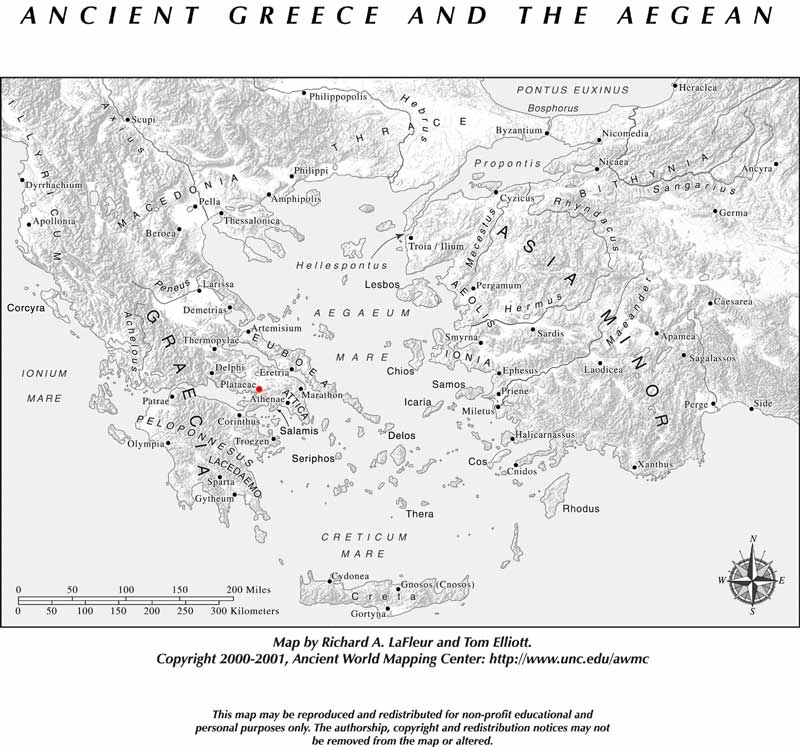
Plataea
An ancient city of Boeotia, on the northern slope of Mount Cithaeron, not far from the sources of the Asopus, and on the frontiers of Attica. It was said to have derived its name from Plataea, a daughter of Asopus.
At an early period the Plataeans deserted the Boeotian Confederacy and placed themselves under the protection of Athens; and when the Persians invaded Attica, B.C. 490, they sent 1000 men to the assistance of the Athenians, and fought on their side at the battle of Marathon. Ten years afterward (480) their city was destroyed by the Persian army under Xerxes at the instigation of the Thebans; and the place was still in ruins in the following year (479), when the memorable battle was fought in their territory in which Mardonius was defeated, and the independence of Greece secured. In consequence of this victory, the territory of Plataea was declared inviolable. It now enjoyed a prosperity of fifty years; but in the third year of the Peloponnesian War (429) the Thebans persuaded the Spartans to attack the town, and after a siege of two years at length succeeded in obtaining possession of the place (427). Plataea was now razed to the ground, but was again rebuilt after the peace of Antalcidas (387). It was destroyed the third time by its inveterate enemies the Thebans in 374. It was once more restored under the Macedonian supremacy, and continued in existence till a very late period. See Wiegand, Plataea (1886).
(Harpers Dictionary of Classical Antiquities, 1898.)
